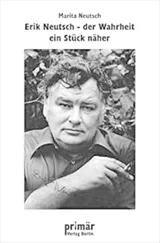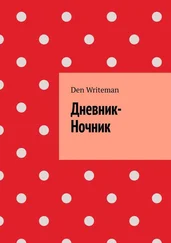Getting back to the old lady, who was now outside the shop, eyeing the rabbits hanging there: having selected one, she brought it in and dumped it on the counter.
‘How much?’ she said, and I told her, and here’s where I overstepped the mark.
Having watched Mr Hellingoe deftly skinning them, I blurted out, ‘Would you like it skinned?’
She looked at me doubtfully and said, ‘Can you manage?’
I winked at her and began the process. It was just like undressing a baby and she watched, probably marvelling at my dexterity—that is, until I came to the last bit. The rabbit was now stark naked and all I had to do was pull the last of the fur over its head.
‘There you are, madam,’ I said triumphantly, but when I jerked the fur over the rabbit’s head I was horrified to see that the fur must have torn because there was still some left on his head like a crew cut.
‘I’m not having that,’ she said and stormed out in high dudgeon.
What was I to do with the naked rabbit? I couldn’t chuck the whole thing in the rubbish box: Mr Hellingoe would know how many rabbits had been hanging outside. Then a smart wheeze crossed my mind. I still had the fur and all I had to do was to dress the rabbit again. The back legs were easy and I’d just got one of the forepaws clothed when Mr Hellingoe returned and I was caught literally red-handed. But instead of hitting the roof, he just smiled and said, ‘Take that home to your mother. You can have it for your Sunday dinner.’
I was overjoyed and at the same time ashamed of the amount of fruit I’d got through illegally, and I made up my mind that anything I took from the stock I’d replace with money in the till. At that moment I would willingly have pushed Mr Hellingoe all the way to Manchester and, if it would have saved him petrol money, all the way uphill back to Oldham.
When I went home that night I was awash with good thoughts—and wide open for the sucker punch. It wasn’t long in coming. I arrived home and casually tossed my wage packet on the table; then while Mother checked the contents, I pulled the rabbit from behind my back like Houdini at his best and said, ‘Voilà’ .
She didn’t smile. ‘Why did you buy a rabbit?’ she said, still holding my wages, and my heart plummeted. Mr Hellingoe had stopped it out of my wages—the crafty old devil. Mother didn’t help matters when she said, ‘And he’s overcharged you as well.’
During the time I was helping to keep Mr Hellingoe’s body and soul together something momentous was happening in an old building just in front of Tommyfield: a new Oldham Scout troop was being formed. As I passed it on the way home I decided to drop in. There were about twenty or so urchins in a circle round the edges of a fairly large room. Half of the boys were still at school but quite a few of us were working for a living. A tall figure in a black cassock down to his ankles stood in the middle and made a short speech, welcoming us all to the formation of the 113th Oldham Scout troop and I relaxed. I noticed three of the older ones holding kettle drums, and as there was one not being used on the floor by them I casually picked it up and stood with the other three. They handed me a drumstick and in no time at all we were marching round the room in single file to the beat of our four drumsticks. By the end of the evening we were all members of the 113th Oldham Scout troop and speaking for myself it was the best evening’s work I’d ever done.
Scouting was to make me fitter and healthier, and give me selfassurance and the comradeship that had been so lacking in my past; but the most important part of this initiation was that I met Bobby Hall, a butcher’s boy. He was also one of the drummers and there was an instant rapport between us. Neither of us could drum. We both showed promise, though; and in a matter of months a banner led the troop on church parade, with four drummers with white ropes hanging beneath our drums and a big drum, and to cap it all looking pretty smart in our new Scout uniforms. The troop was divided into four patrols and I had already been appointed patrol leader of the Peewits. Bobby was troop leader, next in line to the Scout master, who turned out to be the curate at St Mary’s Parish Church. We never saw him in any uniform other than his cassock, but he was accepted nevertheless. The months went by and in that time I gained two armfuls of proficiency badges, all round cords; and my greatest achievement and the most coveted was that I became a King’s Scout. I must have been an awesome figure to the spotty herberts of my Peewit patrol as I explained how to tie knots, put a tent up and recognise the mating call of an owl. I took great pleasure in helping my little band gain proficiency badges of their own, and in return they paid me the compliment of listening to me as if I was Baden-Powell’s grandson.
I don’t know what has happened to the Scout movement these days. I haven’t seen a parade of Scouts for years but the writing was on the wall when I last saw a Scout jamboree on television. Gone were the broad-brimmed Scout hats, which were replaced by berets; and, worse, they all wore long trousers. Perhaps I should move with the times. Well, all I can say is tell that to the beefeaters.
It wasn’t long after the rabbit fiasco that my employment in the grocery trade came to an end, my place being taken by Mr Hellingoe’s daughter, a comely lass, I should think in her mid-twenties. I thought she was smashing but I wasn’t old enough to fancy her. I felt a bit hurt at being given the elbow, but then again she was his daughter and perhaps she worked for nothing as it was all in the family.
I’ve no idea how I came to start work in Shaw, a far-distant cry from the fleshpots of Oldham. Whereas I used to walk to work at Hellingoe’s, from Featherstall Road to Shaw was a fair tram ride. Even more extraordinarily, my new employment was at the Rutland Mill, a cotton mill, but thankfully not in the dark satanic part of it. I was to be the new office boy and I looked forward to it, completely forgetting how I sneered when my brother Vernon started to work in an office, but knowing him as I did I expect he aspired to an invitation to the boardroom table.
At least I had Saturdays off, and I put these rest days to good use, especially in the long summer days. Bobby Hall and I, now ex-Scouts, were still attracted by the lure of camping under the stars, miles from anywhere. For instance, on a typical Saturday afternoon we’d meet at the bus stop in the High Street of Oldham, both of us overloaded with heavy backpacks containing potatoes, eggs, bacon, bread and butter, cushioned by sleeping bags while our rolled blankets were tied securely on the top, frying pan and saucepans, enamel mugs hanging from the straps—we were always well prepared, living up to the Scouts’ motto. From Oldham we went out into the country, perhaps Delph or Saddleworth. Having offloaded our kit and ourselves from the bus, we began our journey to our camping grounds. Our favourite destination was a place called Chew Valley, a massive terrain of huge boulders interspersed with trees and streams. We trekked anything from five to eight miles into this deserted landscape to a rare patch of grass about six feet from a fast-moving stream. We kept our eyes open for dead trees. Within sight of our tiny Shangri-La, and would hurl a rope over a long sapless branch and give it a quick tug to bring it crashing to the ground. Being so dry, it broke into manageable pieces, which we hauled the short distance to our camp.
The first thing was to put up the tent. Everything was then piled inside, in case of inclement weather. The fire was next and thanks to the deadness of the wood a saucepan full of water was soon heating while one of us peeled the potatoes. Then the light began to fade and the stars appeared until the whole of the blackness was crowded with a glittering, sparkling ceiling…Sausage and mash had never tasted so good. A few minutes to digest it, tin plates rinsed in the stream, and then, relaxing on our backpacks, sipping our mugs of freshly brewed coffee, we sighed with happiness as we lit our first cigarettes of the day. Even now I feel blissful contentment overcoming my senses as I recall that first drag on a Woodbine. The silence of our surroundings was disturbed only by the spitting hot logs in the fire and the eternal symphony of the rushing stream’s hypnotic melody. Sleep came easily as by and large it had been a hectic day. Being old hands, we knew that blankets piled on top don’t keep you warm: it’s the blankets underneath that do that, as cold comes up from the earth. Automatically now we pounded out a hollow in the ground for our hips—in fact no bed in the most expensive hotel in the world could have been as comfortable—and when the birds and the daylight opened our eyes on the Sunday morning, we were well rested, hungry and ready to enjoy the day. Light fire, wash in the stream, fry bacon and eggs, the whole breakfast including slices of bread toasted on the tip of green saplings and once again the enamel mugs of coffee, followed by…yes, you’ve guessed it, the first Woodbine—not a bad way to spend a summer weekend.
Читать дальше












